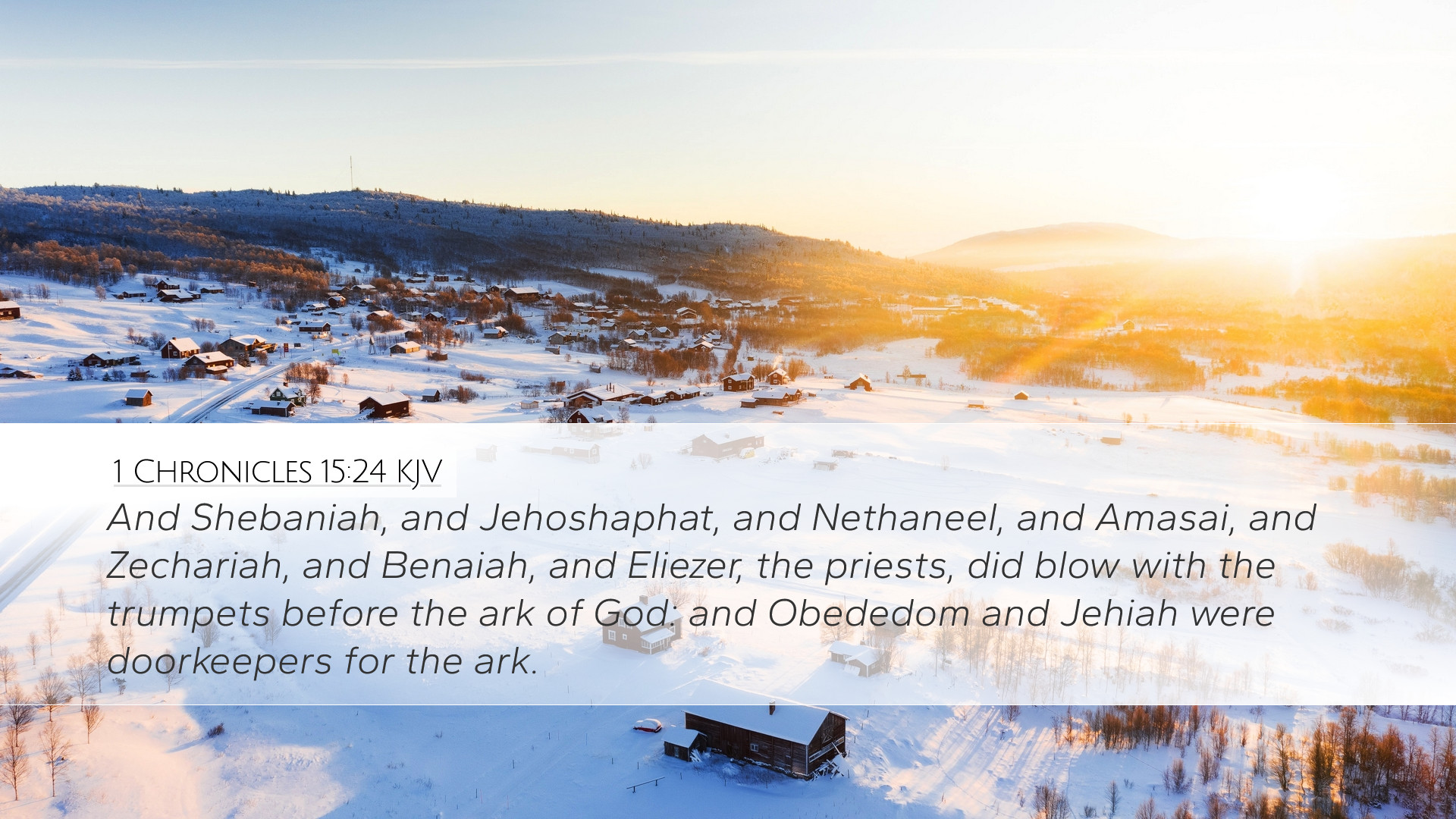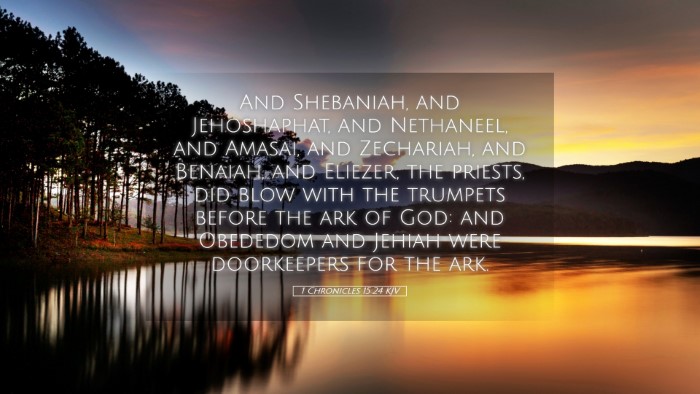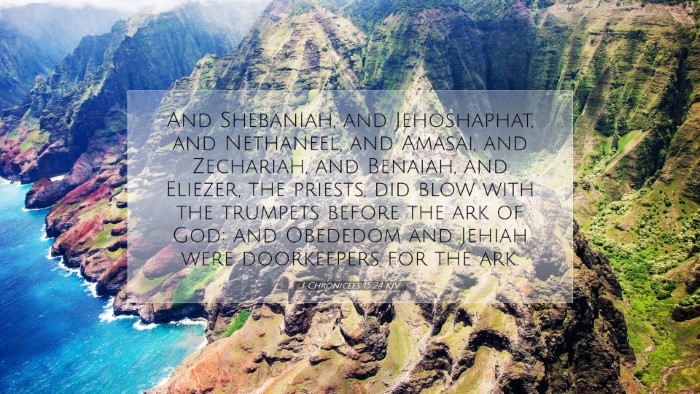Commentary on 1 Chronicles 15:24
Verse Context: "And Shebaniah, and Jehozabad, and Nethaneel, and Amasai, and Zechariah, and Benaiah, and Eliezer the priests did blow with the trumpets before the ark of God: and Obed-edom and Jehiah were doorkeepers for the ark."
Historical Background
This verse is set within the context of King David's preparations to bring the Ark of the Covenant to Jerusalem. The Ark represented God's presence among His people, and its successful transport was a matter of great significance for Israel. Prior to this event, an earlier attempt to move the Ark ended tragically due to irreverence, highlighting the need for careful adherence to God's instructions.
Commentary Insights
Matthew Henry's Perspective
Matthew Henry emphasizes the importance of order and reverence in the worship of God. The priests blowing the trumpets demonstrates a ceremonial protocol that honors God. It also indicates a call to worship, signifying that the presence of God changes the spiritual atmosphere of the gathering. Henry notes that the specific mention of the names reflects their significance in service to God, showcasing the diversity and unity of the leadership in this act of worship.
Albert Barnes' Analysis
Albert Barnes provides insight into the roles assigned in this event. He points out that the responsibilities of the priests in blowing trumpets serve both a practical and symbolic purpose. The trumpets were typically used to announce the presence of God and to signify important events. Barnes also highlights the role of Obed-edom and Jehiah as doorkeepers, which signifies that guarding the holiness of God's presence is paramount. Their positions were not merely functional but filled with spiritual significance, reflecting the need for vigilance in worship and reverence toward God.
Adam Clarke's Remarks
Adam Clarke discusses the broader theological implications of the Ark's transport. He underscores that the effort to bring the Ark to a central place in Jerusalem symbolizes God’s desire to dwell among His people. Clarke observes that the organization of priests and their careful preparation could be seen as a foreshadowing of the New Testament's emphasis on the priesthood of all believers. He encourages readers to see in the actions of these leaders a model for contemporary worship—where order, reverence, and heartfelt participation in the presence of God are essential.
Theological Implications
The actions around the Ark, particularly in this verse, remind us that approaching God necessitates a sense of holiness and decorum. Each participant plays a critical role, reflecting the interconnectedness of the body of Christ in worship today. This verse offers a paradigm for understanding worship as a collective act that invites God’s presence among His people.
Application for Today
- Understanding Worship: Just as the priests were called to play an active role in worship, modern believers are encouraged to participate meaningfully in communal worship, recognizing it as a vital element of their faith journey.
- Holiness in Worship: The careful arrangement and duties set forth in this event suggest that approaching God requires us to consider our own lives—are we living in a way that honors His holiness?
- The Role of Leadership: Congregational leaders today can glean insight into the importance of delegation and the need for various roles in facilitating worship and ministry, reflecting the unity and diversity in the body of Christ.
Conclusion
1 Chronicles 15:24 serves as a reminder of the reverence required in approaching God and the significance of order in worship. As we reflect on the roles outlined in this scripture, we can draw parallels to our lives, prompting us to engage actively and reverently in God’s presence. The careful preparation and role of each individual highlight the communal aspect of our faith and the importance of acknowledging God's holiness as we gather to worship Him.


